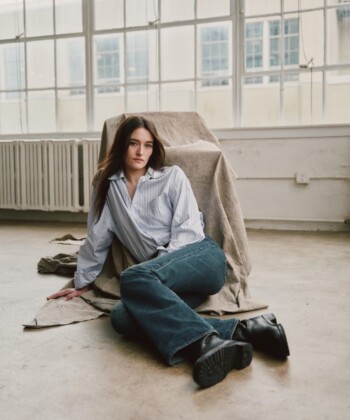
As Kerik explains it—and I had to keep reminding myself that he was once a prominent authority figure in the system—”there are four or five classifications for the BOP [Bureau of Prisons]. You have super-maximum security, if there’s a terrorist or a super-violent criminal. You have maximum security, which is the next level down. After max, you have medium.” That’s where Bernie Madoff is, by the way. “Then you have low. Then you have minimum.” To be eligible for a minimum security “camp,” your sentence has to be less than 10 years (or has gotten to under 10 years) and you need to be considered “nonviolent.”
In other words, if you’re going to prison, this is where you want to go.
When details of these camps trickle out, they rarely seem terrifying. Mickey Sherman, who spent part of 2011 in the Otisville, New York, camp for tax evasion, said last year that the most dramatic part of prison took place when inmates watched American Idol and argued over who got kicked off. Sometimes the accommodations can seem downright quaint. Take the five months Martha Stewart served in the Alderson, West Virginia, women’s prison, where she taught a yoga class and created an entire nativity scene out of ceramics. Her minimum-security prison—complete with “cottages” and tree-lined gates—wasn’t nicknamed “Camp Cupcake” for nothing.
After former hedge fund manager Raj Rajaratnam was sentenced to 11 years (which was the longest sentence ever imposed for insider trading), one prison insider told the New York Post he was “reigning like a king,” with a “personal manservant” who doted upon him with the hopes of becoming his driver after they’re released. People eat these stories up. But the truth is slightly more complicated: Because of his type 2 diabetes, Rajaratnam is staying at a federally run medical facility and in need of a kidney transplant. No picnic there. But if fellow inmates wanted to treat him favorably, who would stop them?
Not all former CEOs have it the same. There’s the case of Kozlowski, the disgraced head of Tyco who received a sentence of eight and one third to 25 years for multiple crimes, including the illegal receipt of $81 million in bonuses. He’s something of an authority on the differences between prisons, having seen the inside of two very different institutions. During his stay at the maximum-security Downstate Correctional Facility, north of New York City, Kozlowski didn’t go outside for eight and a half months, according to the forthcoming book Taking Down the Lion, which covers his rise and fall. In 2006, he moved to Mid-State, a medium-security prison (where he was housed in the same unit as the rapper Ja Rule), and passed the years “doing laundry, reading hundreds of books, tutoring other inmates,” even teaching himself to paint. While incarcerated, he wrote to the book’s author, Catherine S. Neal, that he most looked forward to “doing what free people do. Close a bathroom door, go to the store, drive a car, open a door, call on a telephone, touch a computer.” He closed his letter by saying, “Simple pleasures and the freedom to enjoy them are more precious than you can imagine.”
That’s why no matter what the public perception is, it’s not a good idea to call this a cakewalk to people on the inside. “That whole Club Fed mentality, that shit that they portray in the press, is complete nonsense,” Kerik says.
Kerik, who got out in May but was still wearing an ankle-bracelet during his home detention when I spoke to him again by phone recently, did his time at Cumberland, one of 81 minimum- and/or medium-security prisons in the U.S. He was, by all accounts, including those of prison officials I spoke with, a model prisoner. (If he hadn’t been, he wouldn’t have gotten 11 months shaved off his time.) His law-enforcement background and his very conservative political views have always been a large part of who he is—even after he was sent to prison for breaking the law.
NEXT: “Till Bernie got there, I was the celebrity of the prison.”







































